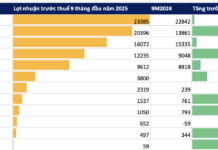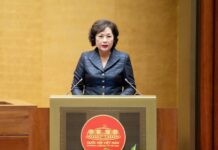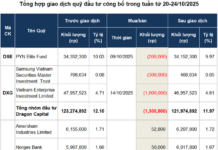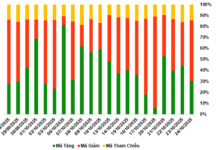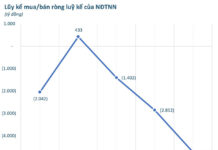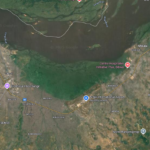70% Legal Issues
Mr. Le Hoang Chau – Chairman of the Ho Chi Minh City Real Estate Association (HoREA) welcomes the meeting organized by the Working Group of the Prime Minister that aims to review, urge, and guide the resolution of difficulties and obstacles in the implementation of real estate projects for localities and businesses after the new laws were issued (Land Law, Housing Law, and Real Estate Business Law) led by Deputy Prime Minister Tran Hong Ha on March 11, 2024.
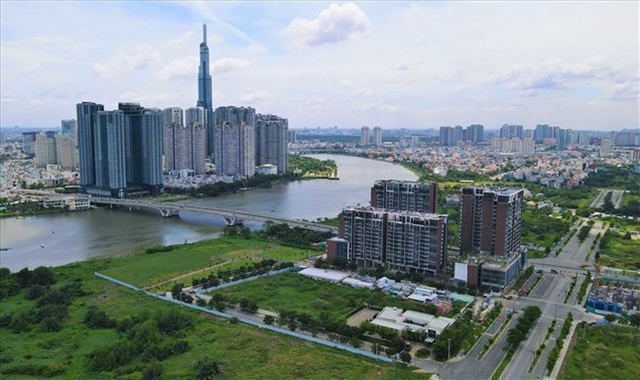 70% of the difficulties in the real estate market are related to legal issues. |
According to Mr. Chau, the conference is very important as it reviews the achieved results in the past year, identifies shortcomings, limitations, and reasons; unifies solutions to improve the operation efficiency of the Working Group of the Prime Minister, the Working Group of localities, and the coordination with competent Ministries, sectors, and agencies to resolve difficulties and obstacles in implementing real estate projects for localities and businesses from now until the end of 2024, especially in the context of the newly issued laws to promote socio-economic development and the safe, healthy, and sustainable development of the real estate market.
The association previously stated that “legal issues” are the biggest obstacle, accounting for 70% of the difficulties faced by real estate investment businesses.
The establishment of the Working Group to remove difficulties and obstacles in the implementation of real estate projects for localities and businesses by the Government is “timely, effective, and has achieved many positive results”. As a result, many provinces and centrally-controlled cities have also established “local task forces” to closely coordinate with the “Working Group of the Prime Minister” and the competent level to make efforts in removing difficulties and obstacles for businesses.
Mr. Chau also mentioned that the Government and the Prime Minister have promptly resolved obstacles of documents under the jurisdiction of the Government and the Prime Minister, such as issuing Decree 10/2023/NĐ-CP to create conditions for granting “red books” for about 100,000 condotel units; or Decree 12/2023/NĐ-CP on fundamentally resolving “obstacles” in land valuation, land appraisal, and land prices for calculation of land use fees, land lease fees for real estate projects, and commercial housing. These have helped hundreds of thousands of homebuyers obtain “red books” early.
Circular 02/2023/TT-NHNN of the State Bank of Vietnam allows commercial banks to restructure outstanding debts, extend debt repayment periods, and maintain loan categories; a credit package of 120,000 billion VND with interest rates lower than 1.5-2% for commercial loans to support investors and homebuyers in social housing projects, workers’ housing, renovation, and reconstruction of apartment buildings…
Recommendations for Removing Obstacles
However, according to Chairman HoREA, there are some “shortcomings, obstacles” in real estate projects and homes due to certain provisions of the laws. For example, the obstacle in paragraph 1, paragraph 4 of Article 23 of the Housing Law 2014 and point b, paragraph 1, paragraph 6 of Article 127 of the Land Law 2024 which stipulate that businesses are only allowed to “agree on the right to use land”, or “currently have the right to use land” or “currently have the right to use land and other land” to implement commercial housing projects.
The association highly welcomes the National Assembly’s directive for the Government to draft a pilot plan “to submit to the National Assembly for consideration and issuance of a resolution allowing the pilot implementation of commercial housing projects through agreements on the right to use land or currently having the right to use land other than those specified in the law,” which is very necessary, inheritable, and compatible with the law and the practice of the Land Law 2013.
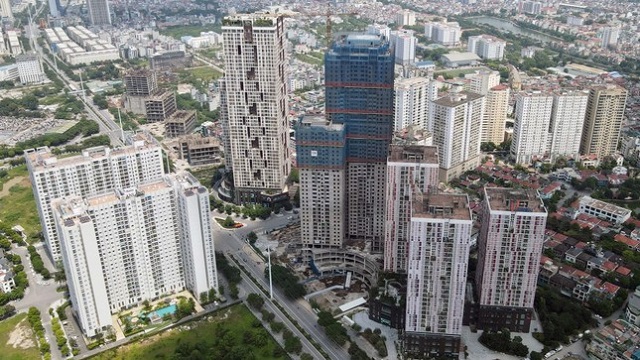
HoREA continues to propose solutions to remove obstacles for the real estate market.
|
The association proposes supplementing the provision that in cases where this pilot project is allowed, investors should be allowed to “change the land use purpose to implement commercial housing investment projects.” Because point b, paragraph 3, Article 122 of the Land Law 2024 only allows the change in the land use purpose to carry out a commercial housing investment project for cases where investors are “currently a land user or a land user and another land user,” and does not regulate cases where investors are “currently using land other than residential land.”
If approved by the National Assembly, this will resolve difficulties and obstacles in implementing real estate projects for localities and businesses after the new laws are issued.
Moreover, according to Chairman HoREA, apart from “shortcomings and obstacles” in real estate projects and homes due to some provisions of the laws, there are also “shortcomings and obstacles” in documents under the laws, such as: Related to the procedure “approval of investment policy concurrently with the approval of investors” under point c, paragraph 7 of Article 31 of Decree 31/2021/NĐ-CP stipulating “the evaluation of the project’s compliance with the planning.”
Therefore, HoREA proposes to amend this provision as follows: “For urban planning, the evaluation must include an assessment of the project’s compliance with detailed planning or zoning plans or general plans. In cases where detailed planning is not consistent with general planning and zoning plans, the approval of the investment policy according to general planning, zoning plans, and land use coefficient or construction density as prescribed by the law on housing must be allowed. Zoning plans and detailed planning must be approved or adjusted according to the provisions of the law before preparing the Feasibility Study Report for construction investment and implementing the subsequent steps of the project.”
Besides, according to HoREA, to remove difficulties and support real estate investment projects, for more than a year, many localities including Ho Chi Minh City have allowed investors to mobilize 50% of the project’s products due to the unidentified land use fees, land lease fees, or additional financial obligations (if any) determined by the competent state agencies, mainly due to the “obstacles” in land valuation, land appraisal, and determining land prices for land use fees, land lease fees, or additional financial obligations (if any).
Now, Decree No. 12/2024/NĐ-CP amending and supplementing some articles of Decree No. 44/2014/NĐ-CP stipulating land prices has basically resolved many “obstacles” in land valuation, land appraisal, and determining land use fees, land lease fees, or additional financial obligations (if any). Therefore, the association proposes that localities consider allowing investors to continue mobilizing capital for 30-50% of the remaining project products to reduce difficulties while still ensuring the asset value of project investors is sufficient to fulfill financial obligations and additional financial obligations (if any) to the state.
|
At the meeting of the working group of the Prime Minister on reviewing, urging, and guiding the resolution of difficulties and obstacles in the implementation of real estate projects for localities and businesses after the new laws were issued, the Deputy Prime Minister proposed that the Ministry of Construction summarize the main obstacle issues that can be resolved in the laws on land, housing, and real estate businesses that have just been approved, and then study advisory plans and submit them to the Government and the National Assembly for the issuance of documents under the jurisdiction to allow early application before the laws come into effect. |
Ninh Phan









